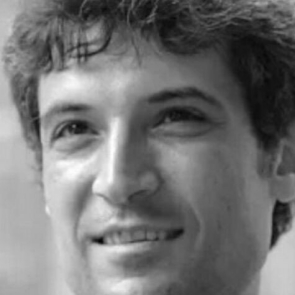Human rights defender Farhad Meysami spends eight days in solitary confinement after contracting COVID-19
On 5 October 2020, human rights defender Farhad Meysami tested positive for COVID-19 and was transferred to solitary confinement the following day, where he received minimal medical attention, despite pre-existing conditions. Eight days later, on 13 October 2020, he was transferred back to the Public Ward of Rajaie Shahr prison.
 Farhad Meysami is a civil and women’s rights defender, teacher and medical doctor. He has been in detention since 31 July 2018, when he was arrested for his involvement with “Girls of Enghelab Street”— a series of protests against the compulsory hijab in Iran. He was convicted on charges of “spreading propaganda against the system”, “gathering and colluding to commit crimes against national security” and “insulting Islamic sanctities”. In December 2018, he was handed down a five year prison sentence, a one year restriction on his civil and political rights and a two year travel ban by Branch 15 of the Revolutionary Court. During his imprisonment, Meysami has led protests against the restriction of prisoners’ rights.
Farhad Meysami is a civil and women’s rights defender, teacher and medical doctor. He has been in detention since 31 July 2018, when he was arrested for his involvement with “Girls of Enghelab Street”— a series of protests against the compulsory hijab in Iran. He was convicted on charges of “spreading propaganda against the system”, “gathering and colluding to commit crimes against national security” and “insulting Islamic sanctities”. In December 2018, he was handed down a five year prison sentence, a one year restriction on his civil and political rights and a two year travel ban by Branch 15 of the Revolutionary Court. During his imprisonment, Meysami has led protests against the restriction of prisoners’ rights.
On 5 October 2020, human rights defender Farhad Meysami tested positive for COVID-19 and was transferred to solitary confinement the following day, where he received minimal medical attention, despite pre-existing conditions. Eight days later, on 13 October 2020, he was transferred back to the Public Ward of Rajaie Shahr prison.
Farhad Meysami is a civil and women’s rights defender, teacher and medical doctor. He has been in detention since 31 July 2018, when he was arrested for his involvement with “Girls of Enghelab Street”— a series of protests against the compulsory hijab in Iran. He was convicted on charges of “spreading propaganda against the system”, “gathering and colluding to commit crimes against national security” and “insulting Islamic sanctities”. In December 2018, he was handed down a five year prison sentence, a one year restriction on his civil and political rights and a two year travel ban by Branch 15 of the Revolutionary Court. During his imprisonment, Meysami has led protests against the restriction of prisoners’ rights.
On 6 October 2020, Farhad Meysami was transferred to a solitary confinement cell, in an area known as the “safe ward” in Rajaie Shahr prison, after he was orally informed that he had tested positive for COVID-19 the day previous. The safe ward lacks medical and many other basic facilities available in the Public Ward. Although Meysami’s health has been described as stable by his lawyer, there remain serious concerns for the defender’s well-being, given that he suffers from pre-existing medical conditions, including intestinal colitis, and has at no point been granted furlough on health grounds during the pandemic.
Front Line Defenders is deeply concerned by the way in which the authorities have responded to Farhad Meysami’s contraction of COVID-19, where he was sent to solitary confinement with minimal medical attention, on the basis of an oral notification. Front Line Defenders is concerned for the physical and psychological well-being of Farhad Meysami, who despite having pre-existing conditions and being imprisoned for defending for women’s rights has not been granted furlough. Meysami’s case demonstrates the severe and unnecessary risk to human rights defenders’ and all lives in Rajaie Shahr and other Iranian prisons, where COVID-19 contraction rates remain high, and overcrowding and unhygienic conditions persist.
